Can lawyers save the planet?



New Zealand has the highest rate of domestic violence in the OECD, with police attending a call for help every three minutes. Most victims can’t take their pets with them when seeking to escape abuse, so they stay or delay leaving out of fear for their pets’ lives.
Pet Refuge helps them to escape their abuser by providing a safe, temporary place for their pets until they can be reunited. Since opening in July 2021, we have helped 225 pets and their families escape violence to start new lives.
We are a small charity that relies on the generosity of people who love animals. We welcome gifts of any size from those who want to leave a Legacy of Love in their will to help us to continue our work.
“The need is so great that we have been at full capacity since the beginning of the year, we need funding to enable us to grow and help more pets and their families trying to escape abuse.” JULIE CHAPMAN, FOUNDER.

www.maorilawsociety.org.nz
For many of us, tikanga and te Reo Māori are central to our practise as lawyers and to our clients’ aspirations
Te Hunga Rōia Māori o Aotearoa, in conjunction with the Waitangi Tribunal, invites all practitioners to a full day seminar led by Judges and senior members.


LawTalk is published quarterly by the new Zealand Law society | te Kāhui ture o Aotearoa for the legal profession. It has been published since 1974 and is available to every new Zealand-based lawyer who holds a current practising certificate.
unless it is clearly indicated, the views expressed in LawTalk are not to be taken as those of, or endorsed by the new Zealand Law society | te Kāhui ture o Aotearoa. no responsibility whatsoever is accepted by the Law society for any opinion, information, or advertisement contained in LawTalk
publications@lawsociety.org.nz
PO Box 5041, Wellington 6140, new Zealand DX sP 20202
For advertising placement:
advertising@lawsociety.org.nz
PRINTING AND DISTRIBUTION

Blue star, Petone, Wellington Issn 0114-989X (Print) · Issn 2382-0330 (Digital)
PEOPLE
Frazer Barton, President
David Campbell, Vice President Auckland
Caroline Silk, Vice President Central north Island
Ataga’i Esera, Vice President Wellington
Taryn Gudmanz, Vice President south Island
Katie Rusbatch, Chief executive Officer
STORY SUGGESTIONS
Do you have a suggestion for a story idea you think would be interesting for an upcoming issue of LawTalk? email: publications@lawsociety.org.nz
What a few months it has been for many across Aotearoa New Zealand, especially in the north and the east. First there was significant flooding, and then Cyclone Gabrielle arrived on our shores. We know that many of you, along with your whānau and friends have been dealing with the various challenges and difficulties in the aftermath. Please know that the Legal Community Counselling Service is available on 0508 664 981. This is a free service provided by the Law Society.
Significant weather events and challenges are becoming more and more frequent, and no part of the country is immune. Which makes our LawTalk March edition especially timely. This edition grapples with legal responses to climate change and considers a lot of the work already done by firms to navigate into a climate-mitigating and adapting world. The article regarding legislative models to address climate change includes compelling research from some of the world’s best legal academics and climate change experts.
Here at home, we have much of which we can be proud. Some of our biggest firms are already making great strides towards carbon zero and sustainable practices. They’ve
banded together to share some how-tos for others to adopt to begin their own journey. We ask one of the world’s leading environmental law experts whether the legal profession has a critical role to play in solving the climate crisis across the world. In this issue we also look at what other industries are doing to become more sustainable and climate-friendly. The New Zealand Super Fund have described what they are doing to diversify and invest in more environmentally friendly ways. New Zealand Green Investment Finance talk us through the innovations they are taking in the contract space, particularly when it comes to the work to develop the New Zealand Climate Clause Bank in using contracts for better climate outcomes.
Climate change, sustainability and our responses to environmental challenges aren’t just something left to scientists and experts. We all have a role to play, and our profession will be at the fore.
On a different note, and dear to my heart, the University of Otago Law School is celebrating its 150th anniversary this year. New Zealand’s
oldest law school has a remarkable history, and has successful alumni across the legal world. Congratulations to Otago Law on making it to 150 years young!
As you may know, the Independent Review Panel’s report was released earlier this month. The report was commissioned by the Law Society because over time it had been clear that the legislation, including the complaints process, was no longer fit-for-purpose and was not serving the public or the profession well. This had been highlighted in 2018 with reports of sexual harassment within the legal profession.
The report’s key recommendations include legislative and structural change to establish a new independent regulator and an overhaul of the system for handling complaints about lawyers. The report found that the current legislative framework is overly prescriptive and inefficient.
The report concluded that the dual functions of the Law Society also don’t serve the interests of the public or the profession well, with these functions tending to conflict with each other. The report states that there is a strong case for a new
independent regulator with a fit-forpurpose governance approach.
The report recommends that a new Act places more emphasis on our Te Tiriti obligations, and highlights that the Law Society could be doing better at providing consumers with clear information about interacting with the legal profession.
The Review has given us all a lot to consider. The recommended actions have significant and complex implications, and any legislative change wouldn’t happen quickly. We will continue to work with the profession and our regulatory partners as we strive towards our commitment to being a best practice, modern regulator and peak
national representative body for the legal profession.
The Law Society is currently reviewing the report and will be making recommendations to the Minister for Justice later this year.
We would like to thank the Review Panel for its work over the past year to prepare this report.
We would also like to thank the profession for the time and thoughtful submissions that were provided. This Review could not have been prepared without your input.
Noho ora mai – stay well ▪
Frazer Barton New Zealand Law Society President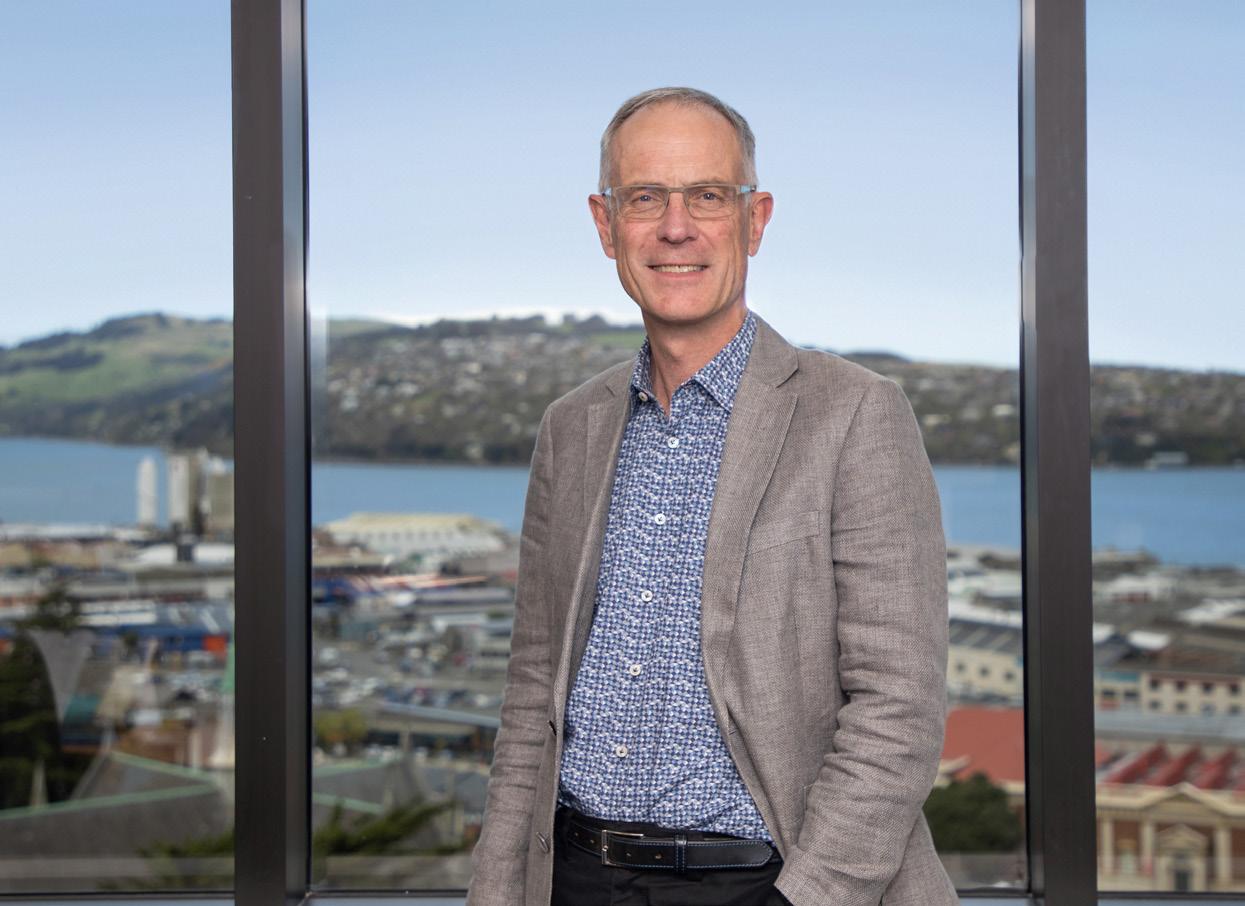
“Climate change, sustainability and our responses to environmental challenges aren’t just something left to scientists and experts. We all have a role to play, and our profession will be at the fore”
Professor Liz Fisher is a Professor of Environmental Law at the Faculty of Law, Oxford University and a Fellow of Corpus Christi College since 2000. In September 2022, she visited New Zealand as a distinguished visiting scholar of the Borrin Foundation. During her visit, Professor Fisher delivered six public lectures on the topic of ‘Legal Imagination and Ecological Futures’ and met with members of the New Zealand legal community.
From her home base in Oxford, Professor Fisher connects with LawTalk to share insights on the role and responsibility of the profession in the critical area of climate change. She does so against a background of unprecedented and tragic weather events in New Zealand and elsewhere. In an era in which the impacts of climate change are being increasingly felt, the question of what role the legal profession plays is a particularly live one.
“Law cannot be a magic wand” says Professor Fisher, but law is vital in responding to environmental problems and to climate change. That is because law is a source of legitimate authority and can create frameworks for action and dispute resolution.

“Law and the legal profession can’t
save the planet, but they do have a necessary role to play.”
A challenge is that most of our laws were developed in an era when the type of environmental issues societies are now facing were absent, especially around agriculture and climate change. What is needed is thus some form of law reform. That reform needs to embrace the distinctive nature of environmental problems – they involve multiple parties, a significant role for science in assessing future risks, and socio-political conflict. Reform also needs to recognise that climate change is a new reality that is not going away.
It is common to think of the courts as the main forums for reforming environmental law. They are not irrelevant. They resolve disputes, are accountability mechanisms, and provide authoritative statements of the law. But Fisher urges those in the profession who think that law reform in this area can only be effected by judges to think again. Courts are not the only legal actors. Good legislation that clearly frames what the problem is has significant role in guiding action. Public administration is also important –although it is difficult to make good decisions when public bodies are under-resourced and are “already
LeFt: Professor Liz Fisher, Professor of environmental Law at the Faculty of Law, Oxford university and a Fellow of Corpus Christi College
on their knees”. Private and commercial law is not out of the climate change picture. Wise legal advice from the profession to their clients about climate risks is crucial. And even if the focus is on the courts, “Judges within a common law system can only work with the arguments before them. Therefore, the focus needs to be on the lawyers, not the judges. We need a collective effort toward presenting better arguments.”
Professor Fisher counts Aotearoa New Zealand as being “ahead of the curve” in many ways when it comes to environmental law. It is a legal culture with a longstanding commitment to taking law and its potential seriously. Legal debate in relation to environmental problems is thoughtful. There is a willingness to acknowledge, accept and embrace principles of tikanga and consideration for a Te Ao Māori worldview. There is also a vibrant and highly skilled legal profession. In her travels around the country she was inspired by the lawyers and the legal scholars she met and the commitment to thinking through the difficult issues that climate change raises for societies. “The Borrin Foundation Fellowship has been one of the highpoints of my professional career,” she notes. “That is because of the truly amazing people I met.”
“Evolving law to meet the challenges of climate change is a group effort,” Professor Fisher says. It is not the province of a single group of lawyers or legal thinkers. “As a scholar, I see
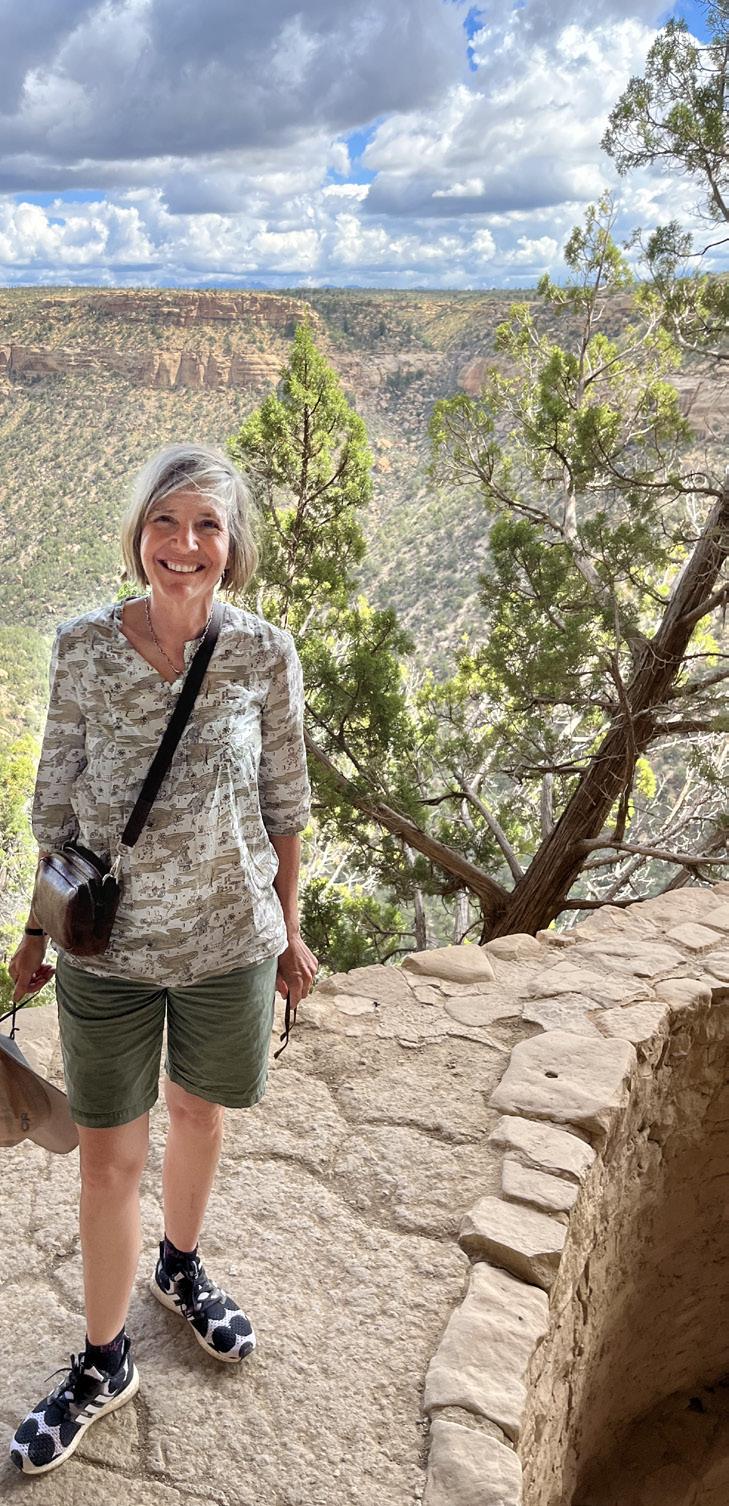
RIGHt: London Plane tree behind the main building of magdalen College in Oxford, called “magdalen Plane”. A scion of the hybrid tree planted in the botanic garden in 1666.

my role in fostering legal expertise in relation to complex problems. When a lawyer is in practice and opens a file, I want them to see that complexity and to bring their legal expertise to bear on it. But I’m not a practitioner – that is a separate body of expertise.” Both are needed in responding to climate change.
While much attention is currently directed to how environmental and climate change law can develop in the future, Professor Fisher argues it is important to also look to the past. Not for answers, but to understand the way in which legal imagination can and could evolve.
In a recently published article1 in the New Zealand Universities Law Review (NZULR) on environmental law reform she draws on an essay by Ursula Le Guin to make the point. Le Guin quotes from the introduction to Howard A Norman’s collection of narrative poems from the Swampy Cree Native Americans
The Swampy Cree have a conceptual term which I’ve heard used to describe the thinking of a porcupine as he backs into a rock crevice: Usà puyew usu wapiw!
‘He goes backward, looks forward.’ The porcupine consciously goes backward in order to speculate safely on the future, allowing him to look out at his enemy or the new day. To the Cree, it’s an instructive act of self preservation. 2
In going backward, it can be seen how far societies have come in tackling environmental problems. Professor Fisher gives the example of Liverpool, England, where in 1842, the average life expectancy of a working class man was 17 1/2 years due to the dire living and working conditions that existed3. In relation to climate change, she notes “We have come a long way in seven years. When you consider that in 2015 the pre-Paris conference challenge was
overcoming climate change denial. Fast forward to now and while there is still a long way to go, societies globally recognise there is an issue. With acceptance comes agreement on changing the way we do things.”
Reflecting on past experiences of how law has evolved can help show a path to the future. Thus in the NZULR piece she provides an example of tree preservation legislation in different legal cultures. But past experience also shows that
it is not enough to pass a law and hope for the best. What is needed is active legal thought in which legal thinking is adapted in light of new problems and new laws.
Again, history shows there are many examples of this. Fisher points to the rich seam of case law concerning the Resource Management Act 1991 (RMA) and in particular, the judgment in Environmental Defence Society Incorporated v The New Zealand King Salmon Company Limited and Ors [2014] NZSC 38. While the RMA regime is currently undergoing reform, it is vital any process of reform is grounded in lessons learnt from the past. “There is a temptation to think that environmental law reform must by radical – that current law is what got us in the mess in the first place –but to effectively address complex problems we need a more nuanced
understanding of what did and didn’t work in the past”. Law is not so much a set of tools but a set of practices that allow communities to develop effective responses to problems. Those responses involve many different laws, many different actors, and many different institutions.
Overall, Fisher argues what is needed is a recognition that legal imagination – the mental constructs that lawyers use to reason with law – needs to evolve in light of new problems. “That evolution will likely be dramatic, but it is not revolution – many of the values embedded in the law, and most obviously the rule of law, continue to be important.” And history is full of examples of such evolution –planning law, waste law, nature conservation law. Legislation such as the Te Awa Tupua (Whanganui River Claims Settlement) Act 2017 is also
LeFt: Khylee Quince, Associate Professor and Dean of Law Aut Law school pictured with Professor Liz Fisher during her 2022 visit to new Zealand

instructive. It is an example of how (to paraphrase the sociologist Donna Harraway) lawyers can ‘imagine legal worlds otherwise’ and do so in rigorous and thoughtful ways. “To tackle climate change we need all the resources, creativity, and expertise of the legal profession,” she states.
“We underestimate environmental risks at our peril” Fisher says. “We need laws that recognise that the relationship between the environment and humanity is both crucial and complex.” Those laws can’t save the planet but they can ensure frameworks that allow societies to work towards ways of sustaining the environment. “There are no easy solutions,” she states, “but any genuine and meaningful response to environmental problems will have law in the mix.” ▪
1. Elizabeth Fisher, ‘“Going Backward, Looking Forward”: An Essay on How to Think About Law Reform in Ecologically Precarious Times’ (2022) 30 New Zealand Universities Law Review 111.
2. Ursula K Le Guin’s “A Non-Euclidean View of California as a Cold Place to Be” in Dreams Must Explain Themselves: The Selected Non-Fiction of Ursula K Le Guin (Gollancz, London, 2018) at 109- 110
3. Edwin Chadwick, Report on the Sanitary Condition of the Labouring Population and on The Means of Its Improvement (House of Commons Session Paper, 1842) at 85.
CarbonClick founder and CEO
Dave Rouse is on a mission that has earned him a seat at the global climate change table. While the core business is delivering high-trust carbon offset programmes for the betterment of people and the planet, he is the first to say that offsetting is just one of a suite of tools toward creating a carbon zero future. Proudly B Corp certified1, CarbonClick is the leading, voluntary carbon offset platform in NZ, and is now one of the leaders on the international stage.
While Rouse advocates for high-integrity carbon offsetting programmes to repair the damage already done, in isolation it could be regarded as “like pulling the plug out of the bathtub while the water is still running.”
Rouse believes that law reform and “better legislation” would offer a higher level of regulatory assistance to the mission of cooling the planet and managing the challenges associated with our climate crisis. Given the human need and often comfort to be regulated, law reform around climate change could also answer that age-old question, ‘what difference can I make?’
Rouse points to current legislation under the Climate Change Response Act 2002 (CCRA), and the 2019 Amendment Act as directed at largescale entities and enterprises including public sector, infrastructure, large and listed companies, making up around 800-900 organisations.
“With SMEs making up a large proportion of New Zealand’s business population, this legislation does not capture this majority group.”
Likewise, current legislation targets scope one emissions which are direct operational emissions and scope two emissions which are the indirect emissions generated directly by the energy purchased and used by a company.
The exclusion of scope three emissions accounts for around ten per cent of other emissions in what’s covered by the CCRA; that is, everything not included in scope one and two. “In New Zealand, we mostly export this problem elsewhere. Bringing scope three emissions into law would be big and difficult to manage but would make a huge difference to our effort. Particularly as scope three makes up approximately seventy-five per cent of a SME carbon footprint,” says Rouse.
Rouse is keen to see the law applied across more than just the largest organisations to upweight our
effort and engage the populous as a collective.
“We need an IRD-type, large scale system. Accounting software systems, for example Xero, are already working on carbon measurement tools. A good legal framework would unlock some of this R&D and could further optimise areas like the Xero ASI algorithms. Funding for this and the likes of MYOB systems would put New Zealand at the forefront of carbon capture. With a population of 5.1 million, we can make a mistake and evolve, which is also why New Zealand has been such a popular test site for everything from EFTPOS to telco tech over the past decades.”
Driving de-carbonisation is a critical and achievable goal for all, no matter how big or small an organisation.
“Taking the green agenda into the boardroom and giving sustainability a seat at the board table will effect the greatest organisational change.” Rouse believes that as a collective, we need to employ the same strategies as we did with workplace health and safety 20 years ago. Reporting first became routine, and then mandatory. This is the evolutionary trajectory we need for sustainability now.”
By integrating sustainability as part of the corporate structure, law firms can lead by example and carry this
across into their client and supplier relations. Rouse encourages this by saying, “a single step can be easily taken without requiring much effort.”
1. Appoint a chief sustainability officer (CSO) to look at simple reductions and measurement processes.
2. Consider carbon offsets and certifications.

3. Bring green talk into the boardroom.
4. Hold yourself accountable and empower the CSO to activate the work culture.
5. Connect with sustainable companies – off-the-shelf solutions such as eBrief Ready software, climate-conscious drafting, and climate clauses. Programmes to
assist companies with achieving their sustainability goals; ‘Think Step ANZ,’ ‘Go Well Consulting,’ and ‘Sustainability Consultants.’
With an increase in climate change cases across the western world, Rouse speculates about an increased risk profile for companies and directors. For the profession, this would mean greater provision for and litigating against climate-related risks and issues. In a way that has never been seen before, the legal profession and the creation of a climate-conscious legal framework will sit front-and-centre in the considerations of our way forward. ▪
of verified performance, accountability, and transparency on factors from employee benefits and charitable giving to supply chain practices and input materials. To achieve certification, a company must:
· Demonstrate high social and environmental performance by achieving a B Impact Assessment score of 80 or above. Multinational corporations must also meet baseline requirement standards.
· Make a legal commitment by changing their corporate governance structure to be accountable to all stakeholders, not just shareholders, and achieve benefit corporation status if available in their jurisdiction.
1. The B Corp movement began in 2006 to transform the global economy to benefit all people and the environment. B Corp Certification is a designation that a business is meeting high standards
· Exhibit transparency by allowing information about their performance measured against B Lab’s standards to be publicly available on their B Corp profile on B Lab’s website. https://www.bcorporation. net/en-us/certification

RIGHt: Community Planting Day. team members planting some of the 34,000 trees for ‘the Halo Project source to sea’ to restore the native dune habitat of Whare wera wera in Dunedin.
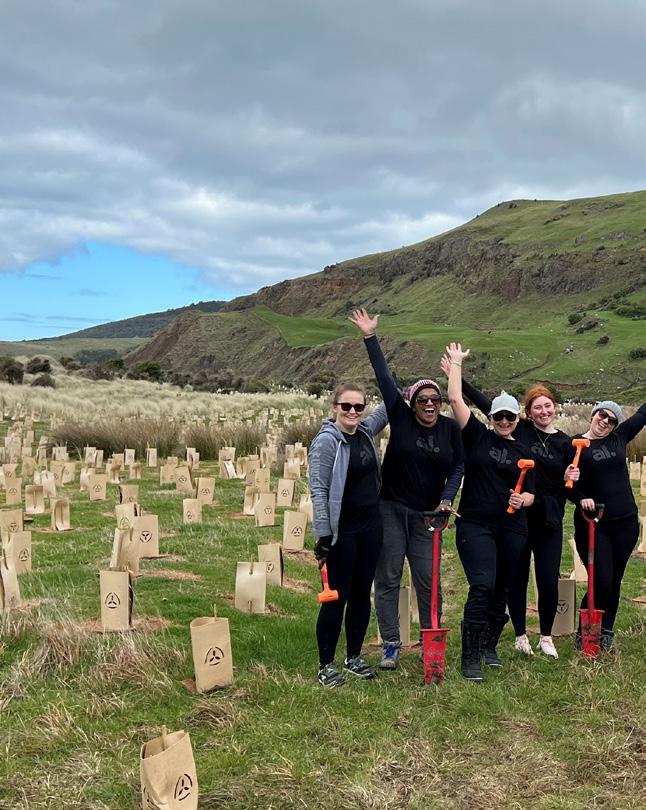
FAR RIGHt: Richard Greenaway, CeO Anderson Lloyd
Great strides to effect positive change for our people and the planet can be made when it comes to adding value to the collective effort through active participation.
Christchurch-based Chief Executive Officer Richard Greenaway of national firm Anderson Lloyd shares how partnerships have lightened the firm’s footprint while contributing to local and broader ESG Environmental, Social and Corporate Governance.
“In 2020, we became the first major law firm to become Toitū net carbon zero certified. This provided a robust foundation for our sustainability effort to build on. Meaningful memberships have been key to this, including the Climate Leaders Coalition and Sustainable Business Council.” Working with these groups enables Anderson Lloyd to be at the forefront of fresh thinking and provide tangible ways to measure the firm’s emissions.
Greenaway points to pertinent topics, such as “adaptation,” that emerge from these forums and enable the firm to front-foot issues in this rapidly changing space. Anderson Lloyd has long worked in the renewable energy space and regularly contributes to “green clauses” under consideration. This includes the Emissions Reduction Plan and Emissions Trading Scheme. “Pooling expertise in this very large space demonstrates the power of collaboration. It enables us to work with a wide range of businesses to assist them in advancing their renewable energy projects,” says Greenaway.
A multi-generational law firm, Anderson Lloyd’s sustainability journey centres around custodianship and very much starts “at home.” Inhouse, Anderson Lloyd works to minimise its footprint by consciously managing emissions
“Creating meaningful partnerships and strong social engagement that includes staff, clients and community organisations, are key to achieving our ESG ambitions”
through leadership to staff, community and clients.
Internal practices comprise three main elements; Reduce, Reuse and Recycle.
In the effort to ‘reduce’, staff are encouraged to consider if an item is really needed before purchasing. An excellent way to validate need before purchase is to sample an item to ensure it will not only perform the intended function but also add value to business operations.
Selecting products that will last a long time helps to minimise waste and, with a “bit of juggling,” elevates the ‘reuse’ effort. This also extends to supplier relations exemplified by making the switch to ‘Ecotricity.’
‘Recycling’, specifically e-waste, combines good sustainable and social practices. Once security protocols have been completed, e-waste is sent to Dunedin-based Cargill Enterprises. A business
enterprise with a social purpose and part of the Disabled Citizens Society (Otago) Inc, Cargill has been providing quality products, services and support for more than sixty years.
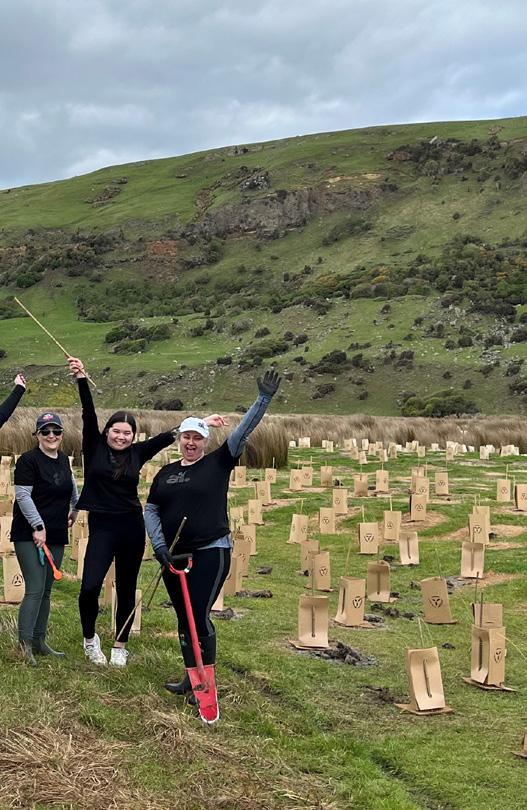
A not-for-profit enterprise, Cargill used surplus funds to support over eighty staff members with some level of intellectual disability across three business units; Timberworks, PacMan and Recycling.
Greenaway says, “Creating meaningful partnerships and strong social engagement that includes staff, clients and community organisations, are key to achieving our ESG ambitions. Sharing knowledge derived from memberships and partnerships together with the expertise of multi-generational experience is a key enabler for the firm to assist businesses in achieving their own climate ambitions, especially in the renewable energy space, and make a meaningful contribution toward creating a more sustainable New Zealand.” ▪
Anderson Lloyd is a member of the sustainable Business Council, Climate Leaders Coalition, nZ Green Building Council, Resource management Law Association, and contributes to the native reforestation work of ‘trees that Count’ through the purchase of 2,000 trees annually.

The first university in New Zealand to teach law will be celebrating the milestone of 150 years of law teaching and study this April. The University of Otago will be hosting an anniversary conference and reunion from 13 to 15 April to celebrate the establishment of Te Kaupeka Tātai Ture Faculty of Law.
Dean of Law at Otago, Professor Shelley Griffiths, says the 150th anniversary event is an opportunity to celebrate friendships and the achievements of staff and graduates of the faculty, and “while it is an opportunity to pause and reflect on the past, it will also provide some moments to think about the future of legal education and the profession as the Faculty continues into the future.”
Otago’s first law lecturer, Sir Robert Stout, started teaching common law in 1873 to 18 students. He left in 1875 to pursue a distinguished political career, including holding the office of Prime Minister and then Chief Justice. A series of local lawyers then lectured part-time for Otago,

through the late 19th and early 20th centuries.
When the Faculty of Law was formally created in 1913 the roll boasted 47 students. Law students were generally employed in local firms and attended classes after hours at their teachers’ offices or the Supreme Court building. Two or three of the most active faculty members had offices in the Cadbury’s cardboard box factory. Later, classes moved to the Dunedin High Court.
Student numbers waxed and waned over the next four decades, reaching as high as 91 in 1928 and as low as eight in 1942, during World War Two. In the late 1950s, the first full-time Dean of Law and Professor, Frank Guest, was appointed (remarkably, he also taught law to fellow prisoners whilst a prisoner of war in Germany during WW2).
In 1966, with 161 law students and three full-time academic staff, law teaching moved to the University campus and into the building that is now the Staff Club. Ten years later, with 471 students and 12 full-time
staff, Law moved into the Richardson Building where it remains today. The four-year LLB degree was adopted in 1967 and by 1970 almost all law students studied full-time. There was a dramatic increase in the number of women law students from the late 1960s.
Throughout this history there have been many remarkable law students, and Otago Law alumni have made a global impact. The Faculty’s student roll and focus have reflected societal changes and progress.
Sometimes this history has highlighted the progress still to be made; while Ethel Benjamin was the first woman to be admitted to law school in Australiasia in 1893, it took almost a century before the number of women law students equalled the number of men. Alumna Dame Silvia Cartwright, who will be a special guest at the 150th anniversary event, has previously observed the isolation
Titiro whakamuri, kōkiri whakamua –look back to move forward
she felt as one of three women studying law during her time at Otago. Professor Jacinta Ruru, one of the speakers at the anniversary event, was the first Māori professor of law to be appointed in Aotearoa New Zealand.
Shaping a future we all aspire to
Dean of Law, Professor Shelley Griffiths, says she is keenly aware of the responsibility the Faculty has to reflect the society we are part of, and for the education of future generations of lawyers and the research of their staff to contribute to the future we aspire to.
To support this, a new Dean’s Innovation Fund will be launched at the anniversary. This fund will enable the Dean to support relevant and important emerging priorities for students. These include funding for students experiencing hardship, and supporting student initiatives and activities, for example, travel grants for students to attend
ABOVe: ethel Rebecca Benjamin, 1897. Photographer unknown, Box-005-001, Hocken Collections uare taoka o Hākena, university of Otago.

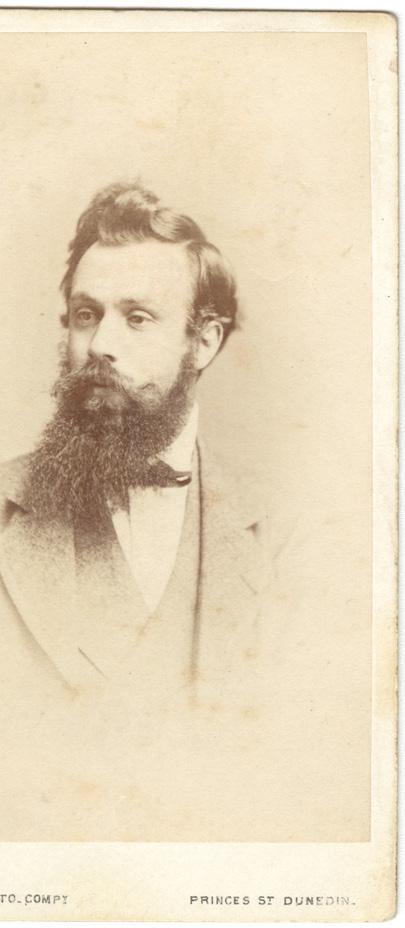
national and international competitions such as mooting.
The Innovation Fund initiative has already received generous support from two Dunedin law firms, Anderson Lloyd and Gallaway Cook Allan.
Anderson Lloyd partner and Law Society President Frazer Barton, says the firm’s contribution to establishing the Law Dean’s Innovation Fund is in line with its values and goals.
“It’s really important that this profession reflects the society we live in, that it is not elitist. We’re in a privileged role, we’re looked up to by society but there are certain expectations we have to live up to. We need to reflect society, so we
“A new Dean’s Innovation Fund will be launched at the anniversary. This fund will enable the Dean to support relevant and important emerging priorities for students”
need to support that diversity in all meanings of the word,” Frazer Barton says.
Gallaway Cook Allan partner, Diccon Sim believes the aims of the Law Dean’s Innovation Fund reflect the personalised approach the Faculty takes to teaching and the opportunities it creates for students.
“The future of law looks a little different from what it’s been historically and the kind of people that have historically been drawn to law are not necessarily the people who are going to best serve the legal needs of New Zealand in the next 150 years,” observes Diccon Sim.
Professor John Dawson is a key organiser of this anniversary event, and says the programme supports the intent of looking back, reminiscing, and celebrating success, as well as looking to the future of the profession. It will be both a social and an academic event. He is grateful for
the sponsorship received from many law firms.
The speakers include many successful Otago Law alumni, who will challenge and entertain the attendees. There will be a staff vs former students debate, a 30-year reunion of Te Roopū Whai Pūtake/ the Māori Law Students’ Association, and a gathering of those who were students of Professor Guest, who died suddenly in office in 1967.
We highlight below some of the distinguished alumni who will speak:
Professor Jeremy Waldron will speak on the rule of law and democracy under an unentrenched constitution. He will review the value of judicial review of legislation as a driver of law reform.
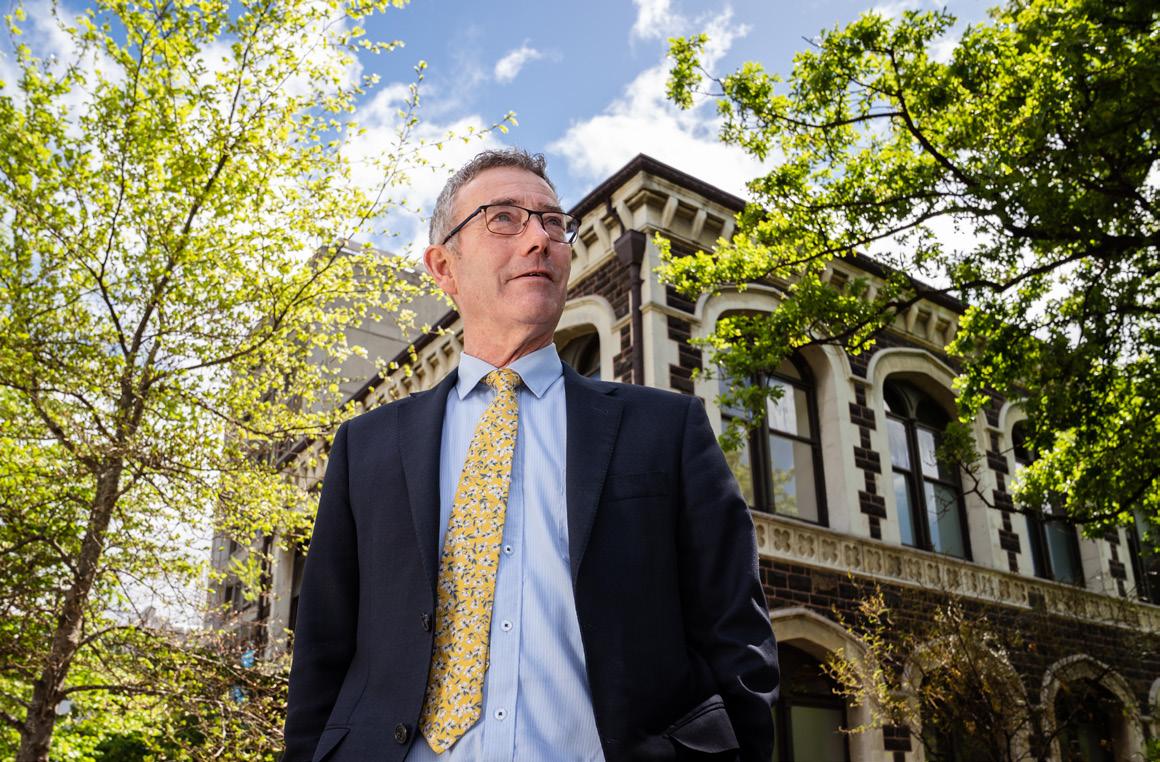
“It’s no secret that I am a strong believer in Parliamentary law reform rather than judicial law-making. And I will be urging law students and faculty in the audience not to feel ashamed about New Zealand’s
lack of a codified constitution and judicial power to enforce it,” says Professor Waldron.
“At a time when judicial review is under attack – for example, in Israel recently – we should not feel that it is our task to call for greater judicial power or even to resist diminution of the powers that judges happen to have.
“Sometimes we just have to respect the verdict of ordinary people organised in a democratic system, and not treat ourselves – judges and law professors – as standing above politics and therefore necessarily having the final say.”
A graduate of Otago and Oxford, and an internationally renowned legal and political philosopher, Professor Waldron teaches at NYU School of Law, in Manhattan. Until recently, he was also Chichele Professor of Social and Political Theory at Oxford. He has written extensively on rights, constitutionalism, the rule of law, democracy, property, security, and homelessness.
He says his time at Otago (1971 –1978), when he studied parallel honours degrees in Law and Philosophy, was a calm and relatively unexciting time in the law.
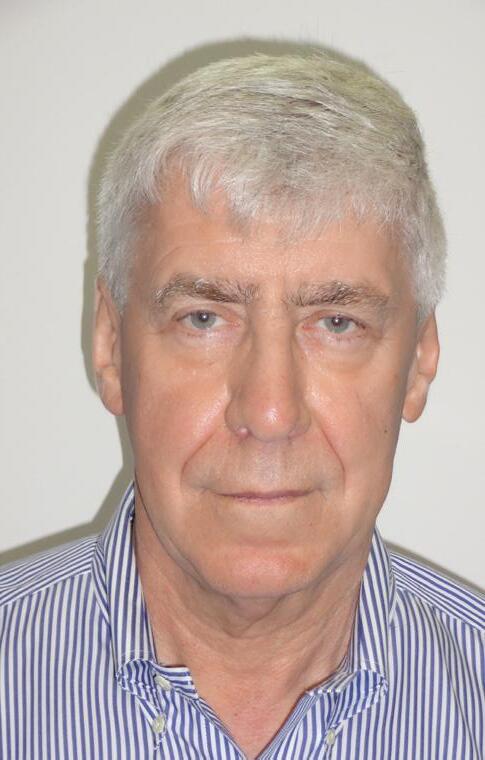
“We were all intensely interested in law reform, and we had seen the massive reform of tort law in the early 1970s. And it was a good time to consider and study the prospect of law reform in Family Law and Administrative Law.
“I think this calmness gave us a healthy sense of business as usual in the law, and a strong sense of our law belonging to the people whose lives it ruled and whose wellbeing it protected.”
Professor Waldron received an honorary doctorate from the University of Otago in 2005, and in 2019 a Professorial Chair in Jurisprudence was created in his name at Otago.

These alumni will be sharing career experiences in their joint session.
Sir Ron Young is the Chairperson of the NZ Parole Board. He previously served as a judge for more than 25 years, serving as New Zealand’s Chief District Court Judge, on the High Court, and on the Court of Appeal. He continues to serve on Pacific courts of appeal. He led the establishment of the judicial orientation programme for new judges and has been President of the New Zealand Electoral Commission. At the Otago 150th, he will debate the usefulness of the parole system in New Zealand.
Kerryn Beaton is a King’s Counsel at Walker Street Chambers, Christchurch. She has held numerous roles within the criminal justice process, including public defender, Crown prosecutor, and now defence counsel. Her practice is particularly focused on cases involving abuse and vulnerable people. She acts for clients charged with the most serious offences, including murder. She has acted as counsel assisting several commissions of inquiry, including the UN Khmer Rouge
LeFt: Diccon sim, Gallaway Cook Allan partner CentRe: Frazer Barton, Anderson Lloyd partner and Law society PresidentRIGHt:Professor Jeremy Waldron
“The future of law looks a little different from what it’s been historically and the kind of people that have historically been drawn to law are not necessarily the people who are going to best serve the legal needs of New Zealand in the next 150 years”
ABOVe: sir Ron Young, Chairperson of the nZ Parole Board
RIGHt: Kerryn Beaton, King’s Counsel at Walker street Chambers
investigations in Cambodia, and the current Royal Commission of Inquiry into Abuse in Care. She will reflect on this career.
These leading judges will speak on their earlier experiences of appearing before the Privy Council and on the impact on the judicial system of the new Supreme Court.
Justice Christine French graduated from Otago and Oxford (she was the first female Rhodes Scholar from Otago, in 1981). She then conducted civil litigation at French Burt Partners in Invercargill, where she became a partner, and represented the successful respondent in the famous Invercargill City Council v Hamlin case in the Privy Council. She was
appointed to the High Court in 2008 and the Court of Appeal in 2012 (another first for a female law graduate of Otago). She has served on the Council of the University and been awarded an Otago HonLLD degree.
Justice Forrie Miller is from a farming background in South Otago. He studied at Otago and Toronto and is a judge of the New Zealand Court of Appeal. He joined Chapman Tripp in Wellington, becoming its chairman and conducting commercial litigation on securities, regulatory and competition law. He was appointed to the High Court in 2004 and Court of Appeal in 2013.
Justice Miller has performed many leadership roles within the judiciary, including promoting case management, managing the Earthquake list for Christchurch, developing
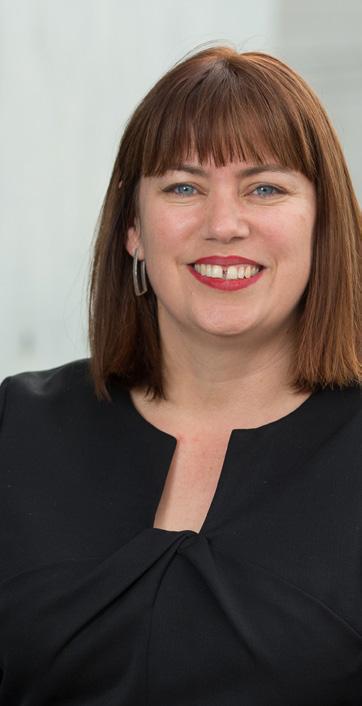

electronic casebooks, and managing the courts’ response to the COVID-19 pandemic. He has been awarded an Otago HonLLD degree.
A session on tikanga Māori and the future of the legal system will feature Otago graduates, Professor Jacinta Ruru, Natalie Coates and Metiria Stanton Turei.
Professor Ruru joined Otago’s Faculty of Law in 1999 and is Aotearoa New Zealand’s first Māori professor of law. She researches how state legal systems should reconcile with their Indigenous peoples, their laws and knowledges, and specifically considers Māori rights and responsibilities to care for, own, manage, and govern lands and waters.
She leads the national research project “Inspiring New Indigenous Legal Education for Aotearoa New Zealand’s LLB degree” alongside all Māori law academics across Aotearoa’s six law schools.
Professor Ruru says there is a growing recognition that tikanga Māori has within it an incredibly dynamic Māori legal system. She says our courts and legislature are becoming much more open to enabling Māori laws to sit alongside and be part of New Zealand’s formal state legal system.
“I fundamentally believe that there are incredible solutions within the Māori world, that if we as a country open more of our hearts and minds to this it would create significant opportunities for us all as a nation.”
Natalie Coates is a partner at Kāhui Legal and was counsel in recent cases where tikanga and the Treaty of Waitangi have been central, including the Supreme Court Ellis proceedings (concerning the relevance of tikanga to whether an appeal can continue beyond death), and the Trans-Tasman Resources Ltd proceedings (that considered the relevance of tikanga and the Treaty of Waitangi in respect of a deep-sea mining consent off Taranaki).

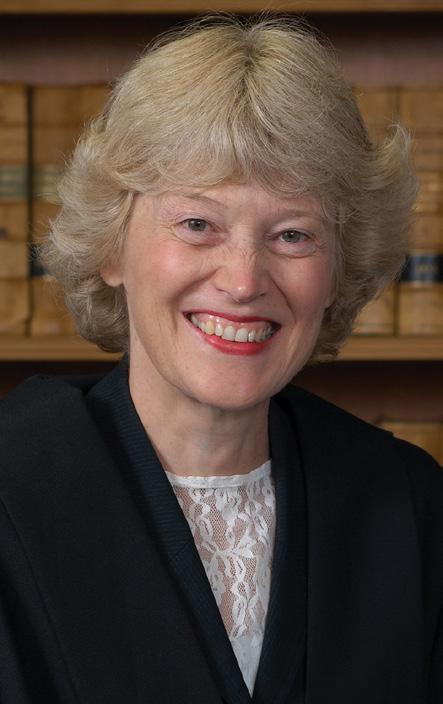
Metiria Stanton Turei was a member of the New Zealand Parliament for 15 years and Co-leader of the Green Party for nine years. She reengaged in legal education and completed an LLM from Otago, where she is now a senior lecturer in jurisprudence, leading the inclusion of tikanga within the curriculum. ▪
More information on the Otago Law Faculty 150th Anniversary Conference and Reunion:
the university of Otago te Kaupeka tātai ture Faculty of Law thanks all the sponsors, speakers and attendees for their support of this event. the major sponsors are Anderson Lloyd, Gallaway Cook Allan, mcmillan & Co, and niche Recruitment.
Friday, 14 April to saturday, 15 April, with some additional elements on thursday, 13 April.
For a full programme and to register, visit the event website: events.otago.ac.nz/law1502023
RIGHt: meRW solicitors receiving the Kotahitanga Award from Community Law Wellington and Hutt Valley
FAR RIGHt: Chapman tripp Community Day out helping charitable organisation, ‘eat my Lunch’
LawTalk pulls up a green seat next to three thought leaders and first-mover firms making a positive difference in how the profession tackles climate change issues in Aotearoa New Zealand.
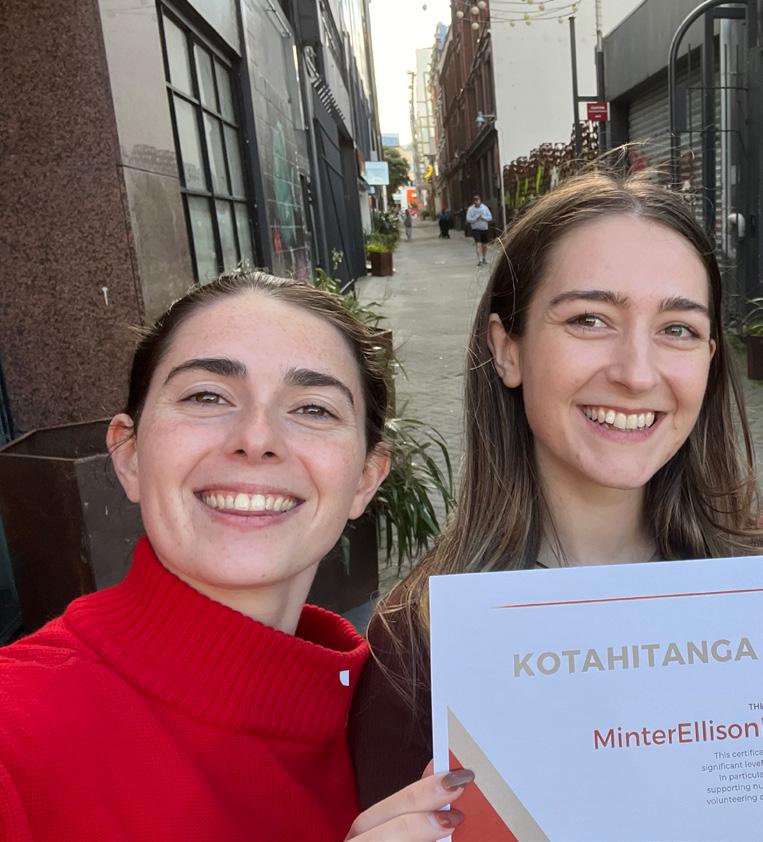
Kate Wilson Butler, Wellingtonbased Director – Climate, Sustainability and ESG for Chapman Tripp; Natasha Garvan, Auckland-based partner for Bell Gully, and convenor of the Law Society’s Climate Change law reform subcommittee; and Holly Hill, Wellington-based partner, and Sustainability Leader for MinterEllisonRuddWatts (MERW) share their principles and best practices on climate change and sustainability, and where the greatest opportunities lie for the profession to make a difference.
With climate change litigation on the rise, New Zealand is already
following international trends of climate litigation, targeting private companies and not solely on governments. The February release of MERW’s Litigation Forecast 20231 brings this topic into sharp focus.
“Climate change litigation, greenwashing, and the regulators’ current focus on business’ social license to operate (rather than simply legal compliance),” form the entry point for the MERW report. Furthermore, the report notes how “activists are increasingly turning to the courts to hold to account those perceived as directly or indirectly contributing to climate change.”
Chapman Tripp’s Kate Wilson Butler says “the upcoming Supreme Court decision on the appeal of Smith v Fonterra Co-Operative Group Ltd [2021] NZCA 552 will be a defining moment
in our legal history and set the course for future climate litigation.”
This also suggests climate litigation as an instrument of change to punish or protect. Moving forward, we will see a greater focus on using climate law as a lever for prevention through protection instead of being a punitive measure after the fact.
As the most contractual element of climate change issues, climate litigation is just one part of a dynamic and multi-faceted approach to climate change that firms are employing.
Wilson Butler and her climate colleagues at Chapman Tripp describe the firm’s integrated view of climate change and sustainability as being one that demonstrates the creation of value for clients, communities,

people, and the environment by implementing global best practices in a local context. For Chapman Tripp, this includes helping clients navigate this new landscape in a way that respects a Te Ao Māori worldview. Global partnerships and alliances such as the ‘Net Zero Lawyers Alliance’, of which Chapman Tripp is the sole New Zealand member, enable access to global networks and emerging thought leaders. Offering net zero-aligned legal services helps provide advice and guidance to clients and evolving businesses responding to climate and ESG2 developments and creating value in response to these emerging risks and trends.
Bell Gully partner and environmental and resource management
law specialist Natasha Garvan agrees that a holistic approach is key to tackling climate issues. Garvan considers New Zealand to be well-positioned in its acceptance and implementation of this approach, given our integrated thinking and consideration for a Te Ao Māori worldview alongside a western worldview.
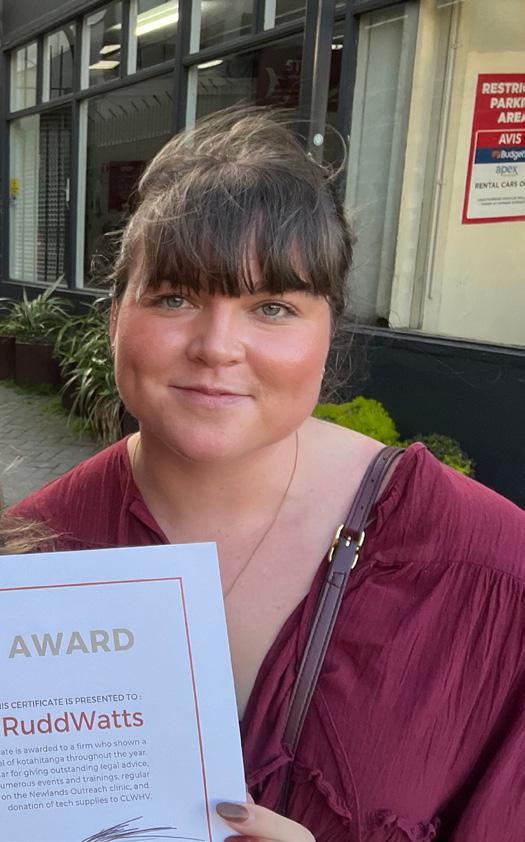
clauses – a new normal MERW partner and Sustainability Leader Holly Hill says “normalising ESG and sustainable practices are key to effecting positive change, and this is consciously woven into every thread of work we do.”
One of the goals in MERW’s ‘Sustainability Strategy 2021-2025’
is to be certified as net zero carbon by 2025. “Alongside this is a commitment to helping create more sustainable futures for our people, clients and communities that focus on protecting the planet. This includes promoting the eradication of modern slavery, promoting a living wage and respecting Te Ao Māori and the world view of other indigenous communities – something that is becoming increasingly relevant for lawyers following the recent decision in Ellis v R [2022]
NZSC 115
Hill urges the profession to consider the difference that could be made if every contract that we drafted has ESG and sustainability principles at its core.
This is at the heart of a first mover project MERW engaged in, ‘The Chancery Lane Project’ – a global movement by lawyers promoting climate-conscious drafting. Hill says such initiatives “allows the contractual facilitator to become the initiator and, in doing so, adopt a proactive approach to climate change.”
Climate-conscious drafting as a practice can extend into all types of contracts and across a wide range of clauses: commercial incentives, governance provisions and dispute resolution, to name but a few.
Hill says “this proactive approach has been exceptionally well-received by clients of the firm and demonstrates detailed thinking behind this critical issue. Presenting such opportunities increases accessibility to climate-related solutions and

helps clients get a ‘win’ in this space. The more you adopt and promote these things, the more yesterday’s novelty can become today’s norm.”
Chapman Tripp’s Wilson Butler has seen an acceleration of change in the climate space over the past two to three years. She notes that “the last few years have been tough for many sectors – from the pandemic, to labour shortages, supply chain disruption, inflation, and most recently the impacts of extreme weather events, it has been easy for sustainability to be seen as a ‘nice to have’. What we’ve seen is that organisations who have embedded sustainability into their core strategy and business planning have fared better through these crises. Internationally, we see many leading companies taking this approach, converting climate action and ESG from a cost centre to a driver of value in the business by integrating it into core strategy and
business planning. In New Zealand, climate-related financial disclosures have catalysed a real shift in the way companies are talking about and acting on climate change risk, with many seeing the mandated reporting as an opportunity to transform their business rather than simply a compliance exercise.”
Bell Gully’s Natasha Garvan says “elevated levels of awareness and commitment to environmental issues are being seen from clients. This is seen in annual reports of major companies where environmental reporting is a given for annual reporting and accorded equal effort to other areas of reporting.”
MERW’s Holly Hill says data insights are gaining in value as a sharp tool in the climate toolbox for litigation, financial reporting and project business cases. International trends show

us that data analysis around ESG captures the pace of change, providing quantifiable evidence to the climate issues we are dealing with and a measurement tool for our greenhouse gas emissions obligations.”
Bell Gully’s Natasha Garvan explains that employing expert measurement agencies, such as Toitū, enables them to engage in a meaningful way with clients and the market. “We have a focus on improving and adapting to reduce our carbon footprint through our own efforts and our engagement with others through the supply chain.”
All three firms have taken a leadership position from within that brings together community, internal practices and external influence with clients. It is testament to this commitment that each firm has a
senior partner or director charged with steering the firm’s sustainability initiatives and future direction.

Chapman Tripp says “sustainability, is a key aspect of Chapman Tripp’s community strategy, which forms a core part of the firm’s strategic plan. In particular, Chapman Tripp’s community strategy focusses on the firm, as a citizen of Aotearoa, making a difference in the communities and environment that it lives and works in. This includes giving back by contributing to our community, through pro bono work, being mindful of our environmental impact through working sustainably and being a responsible employer. The development, monitoring, co-ordination and execution of that strategy is spearheaded by Community Director Greer Fredricson and ensures that the firm is ‘walking the talk’.”
Wilson Butler says, “Chapman Tripp focusses on both our ‘handprint’, or impact we can create through

“The last few years have been tough for many sectors – from the pandemic, to labour shortages, supply chain disruption, inflation, and most recently the impacts of extreme weather events... organisations who have embedded sustainability into their core strategy and business planning have fared better through these crises”
clients – for example, through the Net Zero Lawyers Alliance we’ve committed to offering net-zero aligned legal services – as well as working on our own sustainability journey, including by reducing our own emissions.” Chapman Tripp’s main focus is on reducing, mitigating and managing emissions, however, an offsetting programme is commencing this year to offset unavoidable emissions.
Sustainability is a key strategic focus of the Chapman Tripp board. Furthermore, the firm’s operational priorities and progress on the sustainability strategy reported to the board by the Chief Executive Partner and Chief Operating Officer. This includes deliberately investing in the firm’s capacity and commitment to climate, sustainability and ESG in a way that (as the firm put it when Wilson Butler was appointed in late 2022) is “responding to market and client demands by increasing our capability to support our clients in ways that challenge the perceptions of a traditional law firm.”
MERW has laid the foundation for its sustainability effort with three key pillars:
1. Kia toitū te taiao (having a positive impact on the environment)
2. Kia toitū te tāngata (caring for people)
3. Kia toitū te tikanga (leading the normalisation of sustainability in business)
Hill explains that these pillars underpin and articulate the firm’s sustainability strategy for its people and clients. “Putting a robust
sustainability strategy in place early has enabled MERW to front foot sustainability issues and the significant challenges that climate change offers in an area of rapid change.”
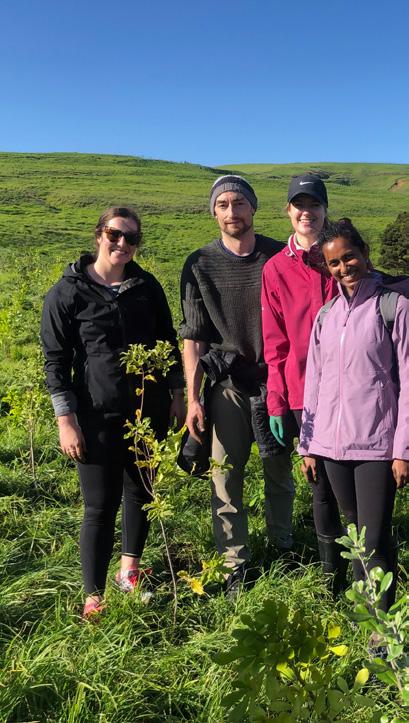
For Bell Gully, a sustainability committee ensures that green issues are reported on, considered and prioritised at a board level. Internally, Garvan points to a series of simple, sustainable practices as being the operating norm for the firm. This also includes a strong community focus. An example of this was the firm’s recent office move in Wellington, where chairs were refurbished, and surplus office furniture was recycled or donated in collaboration with Wellington City Council and other community organisations. Bell Gully also looks to its supplier contracts to build long-term partnerships with suppliers who demonstrate sound environmental values and practices. “An example is our technology leasing through specialist supplier, Quadrent, with an initiative to reduce e-waste entering landfills and provide refurbished digital technology to communities around New Zealand.”
Garvan, who is also the convenor of the Law Society’s law reform environmental subcommittee for climate change says, “reform can either hamper or speed up the process around critical issues such as managed retreat. To accommodate the inevitabilities of climate change such as relocation of threatened communities we need a legal framework to enable this to
happen in an orderly and staged manner.” Garvan sees ‘managed retreat’ as a real likelihood and says “as we have seen, New Zealand is in no way immune to the threats that will drive us towards managed retreat.” Looking to coastal inundation and flood risk areas, there will be a requirement for systemic change that accommodates realistic transition for at-risk communities. “Adaptation in this space is required at an individual and societal level.”
Garvan says it is imperative that we can apply climate levers that “create dynamic, adaptive pathways with trigger points to accommodate the varying stages that may or may not end with relocation but will have a well-thought-out plan in place before we get to a state of emergency. This may include tools such as climate leases.
“Without the luxury of time to address climate change issues, it is critical to have strong, bi-partisan
political leadership. Climate change should not be the domain of one party, nor should it be a political football, as it affects everyone. My view is the nation has largely focused on using the law (the RMA) to enable or stop developments rather than using the law to incentivise outcomes that improve the status quo both economically and environmentally.”
Chapman Tripp’s Wilson Butler says “the legal profession operates within complex systems that are changing in response to climate change and broader ESG issues. Every actor has a role in managing the risk and realising the opportunities that arise from the transition, including lawyers.”

MERW’s Holly Hill points to a concerted effort to elevate the ‘S’ in ESG, sagely posing the question, “What’s the point of saving the planet if there
is no one is left to enjoy it?” This is demonstrated through the firm’s community investment programme which, sitting within the firm’s Sustainability Strategy, aligns with the United Nation’s Sustainable Development Goals (for example, reducing inequality, climate action and rule of law).
climate-related pro bono work. This ranges from positive, significant funding as a billable hours figure to allocated hours per senior lawyer or partner toward climate-related issues. Firms generally verify and assign climate-related pro bono work through a pro bono committee. For MERW, the structure of this work includes pro bono and broader community investment work for key community partners, including championing climate-related clauses through The Chancery Lane Project, and supporting Community Law Centres and the Who Did You Help Today? Trust and its programmes designed to overcome the negative effects of poverty by creating positive pathways.
Through this, staff are empowered to discuss sustainability ideas through a staff-led committee. In doing so, a collective benefit is reaped by “harnessing the energy of the staff through responsibility and respect.”
It would be impossible to talk about a firm’s commitment to ESG without mentioning the words ‘Pro Bono.’ This aspect of work is one with the ability to make a positive impact by supporting climate causes. Firms each take different approaches to managing and implementing
Bell Gully demonstrates their commitment to making a meaningful contribution to initiatives that support communities’ wellbeing through their pro bono and community programmes, which were formally established in 2009. The programme’s scope is unlimited in terms of the range of charitable sectors the firm supports, and includes providing secondees to three local community law centres and providing pro bono advice on conservation and environmental matters. Garvan cites examples of work with the Environmental Defence Society (EDS), New Zealand Coastal Trust and Project Crimson.
Bell Gully supported the NZ Coastal Trust (who worked with local stakeholders, mana whenua and the EDS) to facilitate the high-profile sale of New Chums Beach in Wainuioto

Bay that brought the land into public ownership for the enjoyment of all New Zealanders. Work continues in this space toward applying a protective covenant for this land.
Bell Gully had previously advised a ‘Givealittle’ crowdfunding campaign on the public purchase of Awaroa Beach in 2016.
Garvan counts Bell Gully’s current work with Project Crimson as having a direct relationship to climate change issues. Initially established to re-generate areas of New Zealand’s coastline with pōhutukwa, the Project Crimson Trust has grown to work with a broader collective to strengthen ecosystems and contribute to healthy and sustainable ecosystems throughout the country.
Bell Gully is proud to be involved in Project Crimson’s flagship project, ‘Trees That Count,’ which developed a community marketplace that calculates carbon sequestration levels and provides a platform that enables corporate and private funders to invest in native tree plantings. Over time, this offsets the carbon emissions they are creating today.
Bell Gully’s work included designing a structure and investment vehicle for the development of a biodiversity benefit instrument for investment in the planting of native forests and the creation of new biodiversity in sensitive land areas.
“Contracting and advisory work in this area supports specific afforestation projects and contributes to organisations meeting with corporate social responsibility and ESG goals,” concludes Garvan.
For Chapman Tripp, pro bono legal work is part of the firm’s DNA and it has seen its pro bono practice in relation to climate and sustainability grow in recent years. The firm has been a long-standing partner of The Aotearoa Circle, and supports Toitū Tahua: the Centre for Sustainable Finance. In addition to supporting smaller, local environmentally focussed projects, the firm’s pro bono work has included legal opinions regarding directors’ duties in relation to climate-related risk, and an Investment Stewardship Code, launched in 2022. The firm is currently working on a new legal opinion for The Aotearoa Circle on directors’ duties in relation to nature-related financial risk, an emerging area globally.
Bell Gully’s Natasha Garvan “expects New Zealand to follow global trends of an increase in climate litigation and a greater range of claims. In addition to further claims by advocacy groups placing pressure on the government and industry, in the coming years, we expect to
LeFt: ‘Chapman trippers’ volunteering on motuihe Island conservation initiative
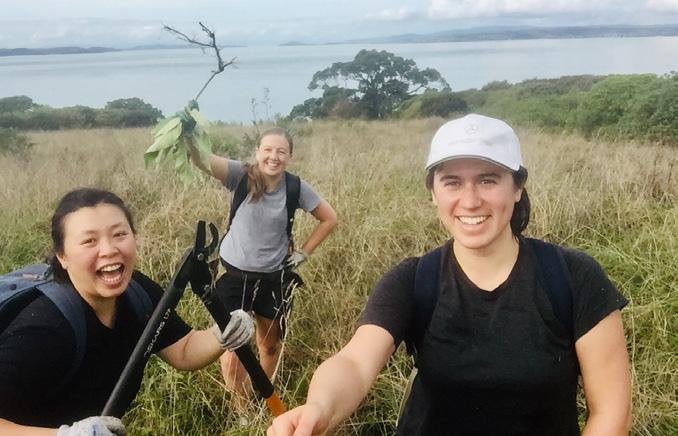
BeLOW: Kate Wilson Butler, Wellington-based DirectorClimate, sustainability and esG for Chapman tripp

see investigations by regulators relating to corporate greenwashing and climate-related disclosures. The FMA3, which now has a mandate for the monitoring and enforcement of climate-related financial disclosures, has suggested that its focus in the preliminary stages of the new disclosures’ regime will be on failures to produce climate statements or where those statements are false or misleading.” ▪
1. MinterEllisonRuddWatts Litigation Forecast. 09 February 2023
2. Environmental, Social, and corporate Governance
3. Financial Markets Authority



“Climate change is one of the most significant intergenerational risks we face, and our response to it poses a number of challenges and opportunities for lawyers,” says Craig Douglas, General Counsel at the Guardians of New Zealand Superannuation, the Crown Entity that manages the $60b NZ Super Fund.
The Guardians has established a strong track record as a responsible investor. It has been included in the United Nations Principles for Responsible Investment Leaders group, named one of the most responsible asset allocators and won a host of awards for its climate change investment strategy, responsible investment practice and transparent public reporting.
Since 2017 the Guardians has significantly reduced the Fund’s carbon exposure, to the extent
that the Fund no longer has any material, long-term holdings of fossil fuel reserves. Importantly, it has been able to make these carbon reductions without compromising financial performance.
Empirical evidence suggests that the link between financial performance and environmental, social and governance (ESG) performance may be neutral or positive but it is unlikely to be negative. In fact, last year the Fund was recognised for being the top performing Sovereign Wealth Fund globally between FY2015-21 with annualised returns of 11.79% during that time (9.5% since inception).
Global investment practice is evolving from a responsible investment model, which is focused primarily on managing ESG risk, towards a sustainable finance focus.

Craig says, “The Guardians has thought hard about where we need to take our approach to responsible investment over the next decade. The shift to sustainable finance has required a change in mindset, from considering the impact of ESG risks on our portfolio of assets we manage, to considering the impact of our investments on society and the environment.”
The Guardians has recently undertaken a strategic review of the approach to ESG to position its investment strategy for the future. This broad-based review covered investment theory and practice, ESG trends, market and legal and regulatory developments.
“It’s clear that stakeholders’ expectations are growing; the bar for good ESG practice is rising and increasingly being reflected in regulatory requirements, ‘soft laws’ and governance practices,” says Craig. In light of the review’s findings,

the Guardians has adopted a sustainable finance strategy. This strategy seeks to deliver positive environmental and social impacts while continuing to deliver strong financial returns. In broad terms, it is built on three core pillars developed by Toitū Tahua | New Zealand Centre for Sustainable Finance:

· Changing mindsets – through governance, leadership and communication
· Transforming finance – by improving ESG performance over the long term
· Financing transformation –investing for the impact that delivers positive sustainability outcomes
Sustainability and ESG reforms are challenging for lawyers. The pace and breadth of reform is swift,
regulation is not always consistent and cohesive globally and the relevant issues can vary greatly by sector and business. The role of the lawyer, and the boundary between legal and other commercial or practical dimensions of sustainability themes, is not always clear.
However, sustainability and ESG are certainly areas lawyers need to be familiar with as they become ever more mainstream. This requires active tracking and monitoring of trends as they emerge – often as best practice or ‘soft laws’ which evolve into regulation. Toitū Tahua’s pillars are a useful lens to classify how interested lawyers can become involved in sustainability/ESG initiatives, and how the Guardians have applied them is outlined below.
Lawyers are closely involved with governance practices and settings, and have an opportunity to promote discussion and engagement on
“At its core, the Fund adds to Crown wealth, improves the ability of future governments to pay for superannuation and reduces the tax burden of the cost of superannuation on future generations of New Zealanders”
sustainability issues. For instance, Chapman Tripp has published an opinion on director duties as they relate to climate change.
At an investor level, the Guardians was a founding signatory and sponsor of the development of the New Zealand Stewardship Code. This supports New Zealand asset owners establishing principles of effective and sustainable investment stewardship.
Stewardship concerns investor practices by responsibly allocating and managing capital to generate value for current and future generations, and sustainable outcomes for the environment and society.
There are opportunities for lawyers to transform finance through contributing to effective and well considered regulation, and also understanding more broadly how that regulation is likely to evolve based on emerging trends.
The Fund has reported under the Taskforce for Climate Related Financial Disclosures (TCFD) climate reporting framework on a voluntary basis for the last three years. It is now implementing the new External Reporting Board (XRB)
climate reporting standards for the next financial year.
However, climate reporting is likely to be the tip of the iceberg for ESG reporting. One of the themes arising from the work in developing the Guardians’ sustainable finance strategy was a clear trend towards investors and corporates reporting on their broader environmental and social impacts.
The Guardians is reviewing broader best-practice ESG reporting and, in particular, reporting on natural capital and nature-related disclosures, building on the work of the Task Force for Nature-Related Financial Disclosures.
Lawyers play an important role in identifying and removing barriers to sustainable investments, such as the work in better enabling on green bonds and green finance initiatives.
The Guardians legal team was involved in the conceptual design and structuring of a new impact investment programme.
This will scale up the Fund’s investment in opportunities that deliver measurable environmental or social benefits. Over time these benefits
will be reported with increasing sophistication.
The legal team has advised on several innovative transactions under the programme, including significant investments into a range of climate and sustainability funds. One is the Fifth Wall Early-Stage Climate Technology Fund. Towards the end of 2021, the Guardians committed US$100 million to the fund, which seeks to invest in new tech to decarbonise the global real estate industry.
About the same time, the Fund committed €125 million to the Copenhagen Infrastructure Partners’ Energy Transition Fund. This focuses on developing large scale sustainable energy infrastructure, primarily in markets throughout Western Europe, North America and the Asia-Pacific region. Among the recent projects underway is the exploration of building a large-scale offshore wind energy plant in Taranaki.
More recently, the Fund invested US$97 million in Generation Investment Management’s Sustainable Solutions Fund IV. This fund is a sustainable investment managed with a commitment to invest globally in companies and teams driving a sustainable future. ▪
“The Guardians’ legal team was involved in the conceptual design and structuring of a new impact investment programme. This will scale up the Fund’s investment in opportunities that deliver measurable environmental or social benefits”
The New Zealand Law Society partners with Vitae to provide up to six free and confidential counselling sessions to anyone in a legal workplace.

How to access this free and confidential service:
▶ Call 0508 644 981
▶ Complete an online form at www.vitae.co.nz/contact/counselling-form
▶ Download the Vitae New Zealand app
Te Tari Hara Tāware – The Serious Fraud Office


Expressions of interest sought: Auckland based Serious Fraud Prosecutor Panel member and a central North Island based Serious Fraud Prosecutor Panel member.
The Serious Fraud Office is the lead law enforcement agency responsible for investigating and prosecuting serious financial crimes, including bribery and corruption.
Our mahi is integral to New Zealand’s reputation for transparency, integrity, fair-mindedness, and low levels of corruption. A specialist agency that uses multi-disciplinary teams such as the SFO is considered internationally as the gold standard for responding to complex financial crime.
The Serious Fraud Office Act establishes a Prosecutors Panel to bring proceedings on behalf of the SFO Director. The SolicitorGeneral appoints the Panel after consultation with the Director. There are two vacancies available, and expressions of interest are now invited from Auckland-based counsel and central North Island-based counsel who wish to be appointed as a member of the Panel. The appointment will be until 30 September 2025.
Criteria for appointment to the Panel include:
• Demonstrated significant experience in criminal prosecutions
• Proven experience in complex financial crime prosecutions
• Excellent written and oral communication skills
• The ability to use technology in prosecutions
• An awareness of the importance of te reo and tikanga Māori
• Holding a practicing certificate as a barrister or solicitor for at least seven years
The SFO recognises that diversity and inclusion are important to our work, and we welcome expressions of interest from counsel from all backgrounds.
Applicants should send their curriculum vitae, accompanied by a cover letter, to ppu@crownlaw.govt.nz by 12pm on Friday 14 April 2023.
Further information about the mahi of the SFO can be obtained by contacting Kylie Cooper, SFO Acting General Counsel, on 09 905 5140 or 027 516 9735.
Following a ‘trifecta’ of catastrophic climate events across the North Island within the space of a month, practitioners are finding themselves navigating clients through a challenging and novel set of property issues.
While the Canterbury Earthquakes experience offers some insight into issues around the reaction and response by insurers, there are material differences in current issues in terms of complexity, scope, and regional dispersal. With property owners and businesses being impacted from Northland and Auckland through to Hawkes Bay and Tairāwhiti, the spread of flood-impacted property is unrivalled in the history of Aotearoa New Zealand.
New Zealand Law Society Property Law Section (PLS) deputy chair, Kristine King – who is a Director of the Auckland-based DK Law – shares some early insights into what is an “evolving suite of issues” for the profession. Kristine points to an “immediate need to guide members through a myriad of property law issues that have arisen from the recent extreme weather events that include the Auckland Anniversary
weekend floods, Cyclone Gabrielle and the flash flooding event of Friday, 24 February 2023.”
While Kristine anticipates both the volume and complexity of issues will increase over the coming weeks and months, immediate cases include issues around settlement on inundated or damaged property or land. Separating damage to land from property in itself presents a differing range of responses and outcomes for clients, involving multiple agencies.
Add to this properties that are already under contract and may have been materially impacted prior to settlement. “It is now more important than ever to include the ability to insure and any exclusions within this as part of due diligence on property purchases,” King says. Likewise, vendors are in the spotlight around material disclosures that could affect the purchaser’s ability to insure the property, alter standard premiums and conditions, or later affect the ability to make a claim.
Clients are advised to actively engage with vendors on any flood damage or impact to the property they are looking to purchase. It may also be prudent to engage with the vendor’s insurer who will already hold a risk position on the property.
The assignment of EQC and private insurance claims will be important to ensure that residual rights are attached to claims in progress, whether repairs have been completed or not. Chair of the PLS and Managing Partner of Christchurchbased Harmans Lawyers Mark Sherry says “extreme caution needs to be applied when it comes to the assignment of claims.”
“The Canterbury experience shows us that both claims and remediation carried vastly different rights for the original property owner and claimant compared to subsequent owners who may have been assigned the claim. The rights of subsequent owners are significantly less than those of the originally insured party.
“The impact of this is still a source of continuing litigation and negotiation twelve years on from the Canterbury Earthquakes. Substandard remediation has been an ongoing issue, with some cases now falling outside of the ten-year statute of limitations

under the Building Act 2004. This has led to EQC having to run a special program for on-sold properties that had been sold as “fully repaired”, only for it to be discovered later on that the initial damage was either not scoped appropriately or the repairs were substandard.”
Sherry’s advice to clients looking for a bargain by taking on an existing claim is a cautionary one, where today’s bargain could well be tomorrow’s headache. The best advice in these cases is to “pause, and let things play out and settle down.” Sherry also points to the four-month time period following the Canterbury Earthquakes before the Crown stepped in to announce the purchase of the initial “red zone” properties and essentially oversee the interagency recovery. It took many months after that to identify and categorise other “red zones” too. He acknowledges that the process is different this time around, with private insurance assessors carrying
out a dual function to assist the EQC claim process too, thereby expediting the assessment process. He also notes that LIM mapping will become critical in material disclosures moving forward with respect to ‘overland flowpaths’ and flood mapping through Councilidentified hazards.

The PLS is taking a proactive stance that prioritises the protection of property law practitioners. The section quickly established a ‘Flood Response Working Group’ to deal with the issues raised by the recent flood events. The group has drafted a suite of clauses to be shared with members and help practitioners navigate issues specific to weather tightness, insurance and assessment. These recommended clauses will offer options to accompany sale and purchase agreements.
“In the first instance, we are looking to protect our property practitioner members,” says King.
“In addition to drafting new clauses for inclusion in agreements, we are also promoting the position of the PLS through educating and working with banks and insurers, with dialogue already open with the Insurance Council of New Zealand –Te Kāhui Inihua o Aotearoa.”
Working with industry partners will be key to achieving cohesive instructions that effectively manage and ultimately mitigate risk for all parties. Where lawyers are being asked – albeit on an ad hoc basis –to provide undertakings around flood-affected property, a suggested response is one that aligns “to the best of our knowledge.”
“Education will provide a solid
foundation for advancing issues and resolutions around the interest of flood-impacted property and the legal response to extreme climate events,” King says.
“Other activations that the PLS will be rolling out to assist property practitioners include a webinar to share knowledge, expertise and prior learnings from industry experts. This will include Christchurch practitioners who will draw on their experience of litigating and advising in the wake of the Canterbury Earthquakes.”
With transactional queries forming the bulk of enquiries to the PLS, King points to the “collegial spirit” of the Section as being best positioned to assist in delivering best practice resolutions to queries. “The depth and breadth of knowledge and experience amongst the group is well-positioned to assist other members.”
King predicts that the scale and scope of the recent, catastrophic climate events present a complex set of challenges that will have a “very long tail.” The scale of the property issues practitioners are facing is in its infancy, with the most pressing being those clients who already have contracts in train for the purchase of flood-impacted properties and land. Sherry hopes that as the Canterbury Earthquakes response provided learnings for the 2016 Kaikoura Earthquakes, it may also provide some pathway to streamline the Crown and interagency response for the 2023 weather events. But with material differences to the impact of the weather events when compared to earthquakes, the response needs to be accompanied by an urgent response with respect to drafting clauses to protect the interests of all. ▪
Ian macKenzie is the Head of Legal at new Zealand Green Investment Finance

After the events of the last couple of months, nobody should have any doubt that our planet is in trouble. And, if we’re honest, everybody knows the cause – climate change.
Climate change used to feel far away. Its impacts tended to be felt in other countries. The scenes weren’t pretty, but if you switched off the TV, it could miraculously go away. However, climate change has clearly arrived on Aotearoa’s shores. Just ask someone in Hawke’s Bay. Or Tairāwhiti. Or Northland. Or Nelson, Auckland, the Coromandel, the West Coast or Marlborough. The human toll has been tragic. The clean-up will take years and cost billions.
Climate change is not a problem that one person will solve. It isn’t a problem that one country or government will solve. But if everyone – individuals, companies, governments – takes responsibility for a more inhabitable planet, it is a problem we can collectively solve.

In fact, lawyers are uniquely positioned to help in the fight against
climate change. Lawyers are sought out by clients for their wise counsel, impartial views and advice. Lawyers also think about risk. And climate change is all about risk. Whether that be physical risk (for example, property damage from flooding), reputational risk (for example, customer backlash as a result of greenwashing), or legal risk (such as the risk of litigation from a business’ polluting). Lawyers are very likely to be involved in the decisions that businesses need to make regarding climate change, from the boardroom to day-to-day operations. If the industry came together to take responsibility for bringing climate change to the forefront of decision making, there is the potential for real change.
And that is where the New Zealand Climate Clause Bank comes in. The initiative, launched in February, is a suite of template clauses for contracts that, when added together across hundreds or thousands of contracts, can help drive better climate outcomes.
“New Zealand Green Investment Finance was established by the Crown to accelerate investment that supports Aotearoa’s decarbonisation. We have a mandate to demonstrate to the market how decarbonisation solutions can work”
Spearheaded by New Zealand Green Investment Finance (NZGIF), with the collaboration of some of Aotearoa’s top law firms, the clauses in the New Zealand Climate Clause Bank can be inserted into any contract to help and encourage the parties to take actions that will reduce greenhouse gas emissions.
NZGIF was established by the Crown to accelerate investment that supports Aotearoa’s decarbonisation. We have a mandate to demonstrate to the market how decarbonisation solutions can work. Primarily, that is through our investments in businesses and technologies that will contribute to Aotearoa’s decarbonisation. However, we also believe that market demonstration extends beyond simply making investments, and we think there is real power in many contracts driving better climate outcomes across the economy. And that is why we have worked to develop and road-test these clauses.

The New Zealand Climate Clause Bank builds on the work of The

Chancery Lane Project, a global collective of lawyers based in the UK, using contracts for better climate outcomes. Many of the New Zealand Climate Clause Bank clauses have been adapted from The Chancery Lane Project’s work and modified for use in Aotearoa.

The clauses span a spectrum from simple boilerplate to more ambitious clauses designed to ensure contract parties operate more sustainably in their interactions.
There are simple clauses, which can be used in all contracts, that require electronic signing and delivery of notices to ensure that printing
is minimised. There is a clause designed to ‘green’ the dispute resolution process by ensuring that parties minimise printing and travel and take steps to offset residual emissions from the dispute resolution process.
More complex clauses include supply contract clauses that require suppliers to measure their greenhouse gas emissions (which will become increasingly important as the Climate Related Disclosures regime is implemented) and take steps to reduce them. Supply contract clauses also allow contract counterparties to terminate a supply
agreement where an alternative supplier is identified who can provide the same services in a greener way. This clause alone has the ability to drive significant decarbonisation in the economy as businesses are required to prioritise sustainability in order to win and retain business.
The New Zealand Climate Clause Bank has clauses for inclusion in company constitutions and shareholder agreements designed to make sure that companies prioritise working towards Aotearoa’s net zero targets. This includes measuring and reducing greenhouse gas emissions and other actions aligned with that objective (like encouraging virtual board meetings).
There is also a clause specifically for the property sector that encourages landlords and tenants to prioritise sustainability in buildings, including by creating a framework for improving a building’s sustainability characteristics and requiring the parties to actively minimise waste.
The clauses have the potential to significantly change the way businesses think about climate
change and their role in mitigating it. Instead of sustainability being something to attract conscious consumers, businesses would be contractually bound to help save our planet. Sustainability wouldn’t be a differentiating factor – it would be a common factor across the business world.
But the clauses can’t help if they sit in a drawer (or on a website), unused.
And that is where the legal profession comes in. The call to action is for all lawyers to look at the clauses, consider how they could be used in the contracts they draft, talk to their clients (whether internal or external) about them and, ultimately, include them in as many contracts as possible.
And it is possible. At NZGIF, we’ve been using these clauses for 18 months. They haven’t been a source of protracted negotiation. On the contrary, our counterparties have generally been very receptive to them.
It may not seem like much, but little actions aggregated can make a difference. A common argument against climate action, particularly in Aotearoa, is that we’re too small to affect the outcome. But that has never stopped us from taking on the world before. And every gram of greenhouse gas that doesn’t enter the atmosphere will matter. If you need any reminder about that, consider this: the impacts of climate change that we are feeling now are the result of 1.1 degrees of planetary warming.1 If we achieve our most
ambitious goals, the planet will still warm by 1.5 degrees.2 If we deliver all current global government policies, the planet will warm by 2.7 degrees.3 If we don’t even do that, the outcome doesn’t bear thinking about. There has never been a more urgent time to take every little action we can to prevent the worst outcomes that are predicted.
The legal industry in Aotearoa now has the opportunity to be truly world leading in the fight against climate change, just by doing our day jobs. That’s something we should all want to be part of.
As Dr Seuss’s The Lorax has been telling us since 1971, “unless someone like you cares a whole awful lot, nothing is going to get better. It’s not”.
Now is the time to start caring. ▪
the new Zealand Climate Clause Bank is available for use by all lawyers and other businesses, for free, at nzgif.co.nz/investing/newzealand-climate-clause-bank/ Contact Ian macKenzie, Head of Legal, at ian.mackenzie@nzgif.co.nz for more information.
1. NASA Global Climate Change – Vital Signs of the Planet climate.nasa.gov/
2. “The Paris Agreement” United Nations Framework Convention on Climate Change climate.nasa.gov/
3. Climate Action Tracker climateactiontracker.org/global/ temperatures/
“The legal industry in Aotearoa now has the opportunity to be truly world leading in the fight against climate change, just by doing our day jobs”

• Instant access modules
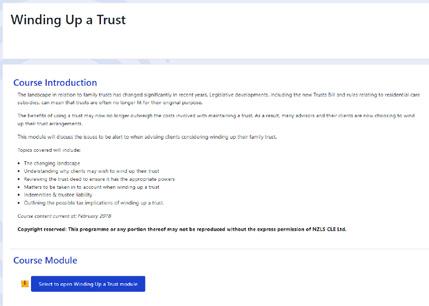

• Pre-selected packages
• Pick ‘N’ mix packages – your choice
• CPD compliant
• Presented by subject matter experts
• Extensive range of practice areas
• Convenient 24/7 access – you choose when and where
• Learn at your own pace
• Complete all at once or pick up where you left off
• Bonus electronic booklet & powerpoints
The Independent Review Report released by the Law Society has recommended that legislative and structural change is required and recommended the establishment of a new independent regulator and an overhaul of the system for handling complaints about lawyers.
The report was commissioned by the Law Society in 2021 because over time it had been clear that the legislation, including the complaints process, was no longer fit-for-purpose and was not serving the public or the profession well. This had been highlighted in 2018 with reports of sexual harassment within the legal profession.
The Law Society also wanted to understand the extent of the issues and take the opportunity to shift to a more modern regulatory environment given the changes that have taken place in New Zealand and internationally since the Lawyers and Conveyancers Act was introduced in 2006. Alongside this, the Law Society needed to ensure that the legal profession has a strong representative voice that was responsive to the needs of the profession and the public.
“The report we are releasing today outlines that statutory change is needed if we are going to do more to protect consumers and the public. The report states that while the Law Society is working within the current legislative framework, it is overly prescriptive and inefficient,” Law Society President Frazer Barton says.
“The Review Panel found that dual functions of the Law Society also don’t serve the interests of the public or the profession well, with the functions tending to be in conflict with each other. The report states that there is a strong case for a new independent regulator with a fit-for-purpose governance approach.
“The report also recommends that a new Act places more emphasis on our Te Tiriti obligations, and highlights that we could be doing better at providing consumers with clear information about interacting with the legal profession.
“The Law Society Board would like to thank the Review Panel for the work it has done during the past year to prepare this report.
“We would also like to thank the Profession for the time and
thoughtful submissions that were provided throughout the course of this Review. This Review could not have been prepared without your input.
“The Review Panel’s report is very substantial and has given us all a lot to consider. The recommended actions have got significant and complex implications, and any legislative change wouldn’t happen quickly. We will work with government to understand the likelihood of legislative change as we strive towards our commitment to being a best practice, modern regulator and peak national representative body for the legal profession.”
The Board is currently reviewing the report and will be making recommendations to the Minister for Justice by the end of July.
“We have set a goal of becoming a best practice modern regulator, and a strong voice for profession through a representative function and this review has outlined a number of areas where steps are needed for improvement,” Mr Barton says.
“While this review has been underway, we have continued to

make significant progress in line with the Review Panel’s conclusions, and will already be moving forward on a number of actions that are aligned with the recommendations. There is a new regulatory strategy in place and this has been a significant step forward on our transformation journey to modernising the regulatory functions of the Law Society and making sure our services are responsive.
“There is new leadership established at the Law Society and we have every confidence we have the right team to drive the changes that are needed. We have also started work on setting our future strategy for how we operate as a membership
body and will be continuing to work with the Profession on what that will look like.
“We will be continuing to work with our team and with the profession to make progress over the coming months while we consider the recommendations, and any longer-term actions that are needed to address some of the more systemic and legislative issues that have been raised.
“This independent review is an important step forward to outlining the potential changes that are needed for the legal profession in the future, but it is going to take all of us working together to achieve the differences that are needed.” ▪
Understand the main recommendations and conclusions in the Independent Review Panel’s Report.
Tuesday 28th March, 5pm-6pm
1hr CPD
Monday 3rd April, 1pm-2pm
For more information go to legalframeworkreview.org.nz

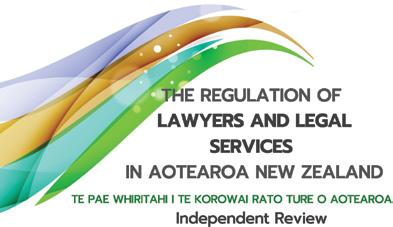
“This independent review is an important step forward to outlining the potential changes that are needed... but it is going to take all of us working together to achieve the differences that are needed”
Take the leg work out of your legal research and put it in the experienced hands of the Law Libraries research services team. From research to document delivery and more, contact the team today for the right results, right on time.
lawsociety.org.nz/law-library
